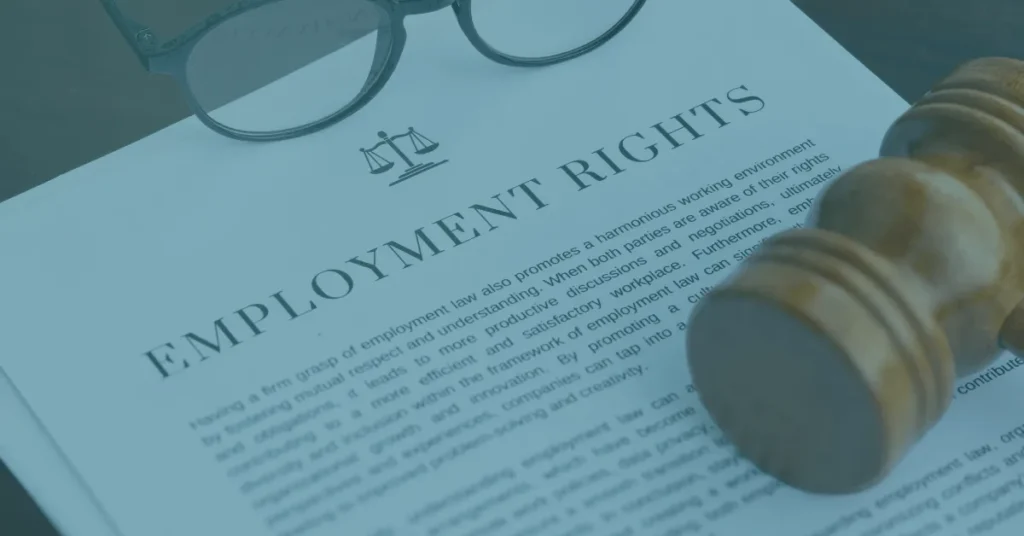Workplaces are supposed to be fair. Every employee, regardless of background, deserves equal opportunities for hiring, pay, promotions, and treatment. That principle is at the core of equal employment laws. But in reality, violations are all too common — whether through discriminatory hiring practices, unequal pay, or retaliation against those who speak up.
When these rights are ignored, employees suffer. Careers are stalled, wages are lost, and workplaces become hostile. Fortunately, state and federal laws exist to protect employees in Oregon. If you’ve been treated unfairly at work, anOregon employment lawyercan help you determine whether your experience qualifies as an equal employment violationand guide you through the process of seeking justice.
TL;DR
Equal employment violations happen when employers discriminate in hiring, pay, promotions, or workplace treatment based on protected categories. Oregon employees are protected by state and federal laws. If you suspect a violation, document incidents, file complaints with BOLI or EEOC, and seek help from an employment lawyer.
What Is an Equal Employment Violation?
Equal employment is the idea that every person should have a fair shot at success in the workplace. An equal employment violationoccurs when an employer engages in discriminatory practices that deny opportunities, pay, or workplace dignity based on a protected characteristic.
At the federal level, the Equal Employment Opportunity Commission (EEOC)enforces these laws. In Oregon, the Bureau of Labor and Industries (BOLI)plays a similar role. Both agencies investigate claims and hold employers accountable.
Violations can occur at any stage of employment, including:
- Hiring:refusing to hire based on age, gender, or disability.
- Pay:giving unequal wages for the same work.
- Promotions:passing over qualified employees because of race, religion, or another protected category.
- Termination:firing someone for discriminatory or retaliatory reasons.
- Workplace treatment:tolerating harassment, intimidation, or denial of accommodations.

Common Examples of Equal Employment Violations
Equal employment violations can take many forms. Some are obvious, while others are more subtle. Here are the most common scenarios employees encounter:
1. Discrimination in the Workplace
Employers cannot make decisions based on protected categories such as:
- Race, color, or national origin
- Gender, sexual orientation, or gender identity
- Religion
- Age (40 or older)
- Disability
- Marital status or veteran status (protected under Oregon law)
Discrimination can appear in job postings, hiring decisions, promotions, pay scales, or daily treatment at work.
2. Unequal Pay
The Equal Pay Actand Oregon’s Pay Equity Lawrequire equal pay for equal work, regardless of gender or other protected characteristics. If two employees perform similar tasks with similar skill and responsibility, they must be compensated equally.
3. Harassment
Harassment tied to protected categories is another violation. This includes sexual harassment, racial slurs, offensive jokes, or creating a hostile environment that interferes with an employee’s ability to work.
4. Retaliation
It is illegal for employers to retaliate against employees who:
- Report discrimination or harassment.
- File a complaint with HR, BOLI, or EEOC.
- Request accommodations for disability or religion.
Retaliation can include demotion, reduced hours, or termination.
5. Failure to Provide Reasonable Accommodations
Under the Americans with Disabilities Act (ADA)and Oregon law, employers must provide reasonable accommodations to qualified employees with disabilities, unless it causes undue hardship. Similarly, employees are entitled to accommodations for religious practices.

Federal and Oregon Laws Protecting Employees
Employees in Oregon are protected by a strong framework of state and federal laws:
- Title VII of the Civil Rights Act of 1964:Prohibits discrimination based on race, color, religion, sex, or national origin.
- Americans with Disabilities Act (ADA):Requires reasonable accommodations for qualified individuals with disabilities.
- Age Discrimination in Employment Act (ADEA):Protects workers 40 and older from discrimination.
- Equal Pay Act of 1963:Requires equal pay for equal work.
- Oregon Equality Act & Pay Equity Law:Expands protections to cover sexual orientation, gender identity, marital status, and veteran status.
Together, these laws ensure that Oregon employees are protected from a wide range of unfair practices.
Signs You May Be Experiencing an Equal Employment Violation
Sometimes violations are clear. Other times, they’re harder to spot. Watch for these warning signs:
- You are repeatedly passed over for promotions despite strong qualifications, while less qualified employees are advanced.
- You discover coworkers performing the same job are paid more, especially if the difference is tied to gender or another protected status.
- You hear offensive jokes, slurs, or comments directed at you or others based on protected categories.
- You face discipline or firing soon after filing a complaint or requesting accommodations.
- Your employer refuses to discuss or provide reasonable accommodations without valid reasons.
If any of these situations sound familiar, you may be dealing with an equal employment violation.
How to Respond if You Suspect a Violation
If you believe your rights have been violated, taking swift action is important. Here’s what you should do:
- Document everything.Keep records of incidents, emails, performance reviews, and pay stubs. Documentation is crucial evidence.
- Report internally.Follow your employer’s reporting procedures by speaking to HR or a supervisor.
- File a complaint with BOLI or EEOC.These agencies investigate discrimination and retaliation claims.
- Consult an employment lawyer.An attorney can evaluate your case, guide you through deadlines, and represent you if your employer refuses to correct the issue.
Remedies Available in Equal Employment Cases
When employees prove equal employment violations, they may be entitled to significant remedies, including:
- Back pay:Recovery of wages lost due to discrimination or retaliation.
- Front pay:Compensation for future lost earnings if reinstatement isn’t possible.
- Promotion or reinstatement:Returning to the role or level you were unfairly denied.
- Compensation for emotional distress:Addressing the harm caused by discrimination or harassment.
- Punitive damages:Awarded in severe cases to punish the employer.
- Attorney’s fees and costs:Ensuring employees don’t bear the burden of legal expenses.
These remedies are designed to restore fairness and deter employers from repeating violations.
The Role of an Employment Lawyer
Equal employment cases are complex. Filing deadlines can be as short as 180 to 300 days,depending on the agency. Evidence must be carefully presented, and employers often have legal teams defending them.
An Oregon employment lawyer can:
- Assess whether your experience qualifies as a legal violation.
- Ensure your claim is filed within the correct timeframe.
- Gather evidence and witness statements.
- Negotiate settlements on your behalf.
- Represent you in court if necessary.
Having a lawyer levels the playing field and ensures your rights are fully protected.
Conclusion
Equal employment is more than an ideal — it’s a legal right. When employers in Oregon discriminate, retaliate, or deny fair treatment, they commit equal employment violations that can devastate careers and lives.
Employees do not have to tolerate unfair treatment. By documenting incidents, filing complaints, and working with an experienced advocate, you can hold employers accountable and secure the remedies you deserve.
If you suspect an equal employment violation, don’t wait. Speak with anOregon employment lawyerto understand your options and protect your future.
FAQs
What’s an example of an equal employment violation?
Paying women less than men for the same job is a common violation.
What agency handles complaints in Oregon?
You can file with the Bureau of Labor and Industries (BOLI) or the EEOC.
Can I be fired for reporting discrimination?
No. Retaliation for reporting is illegal.
How much time do I have to file a claim?
Generally 180–300 days, depending on whether you file with BOLI or EEOC.
What remedies are available if I win my case?
You may recover back pay, emotional distress compensation, reinstatement, and sometimes punitive damages.



